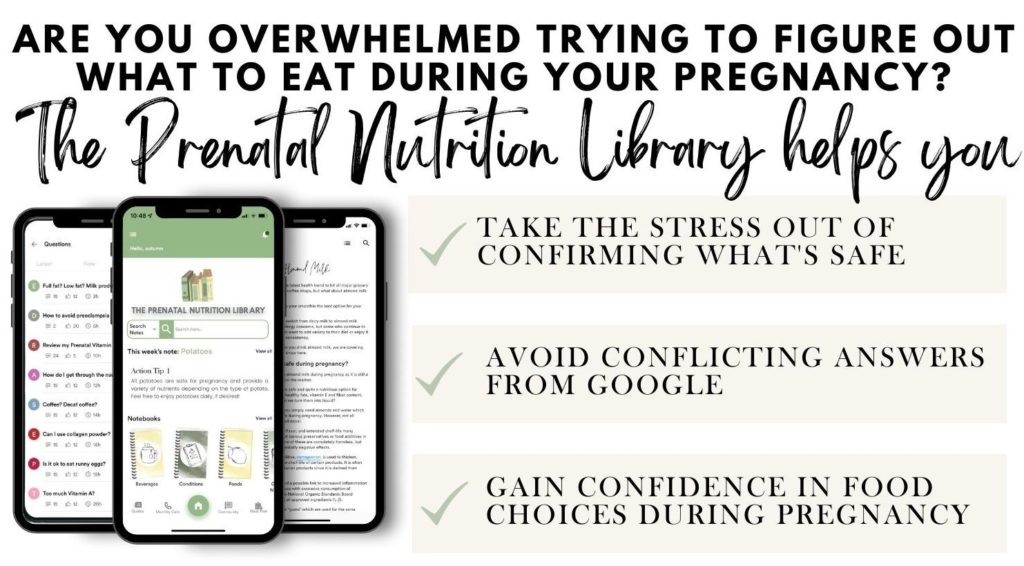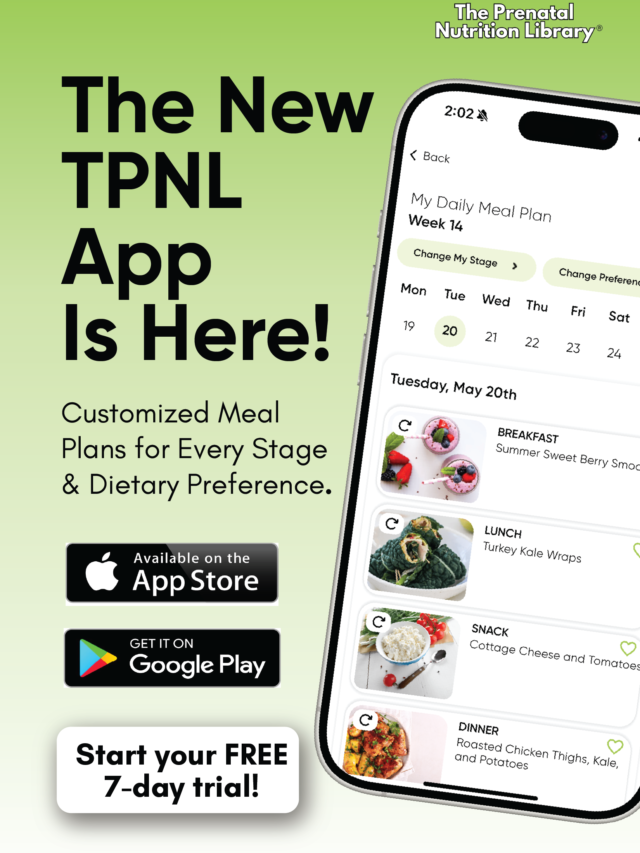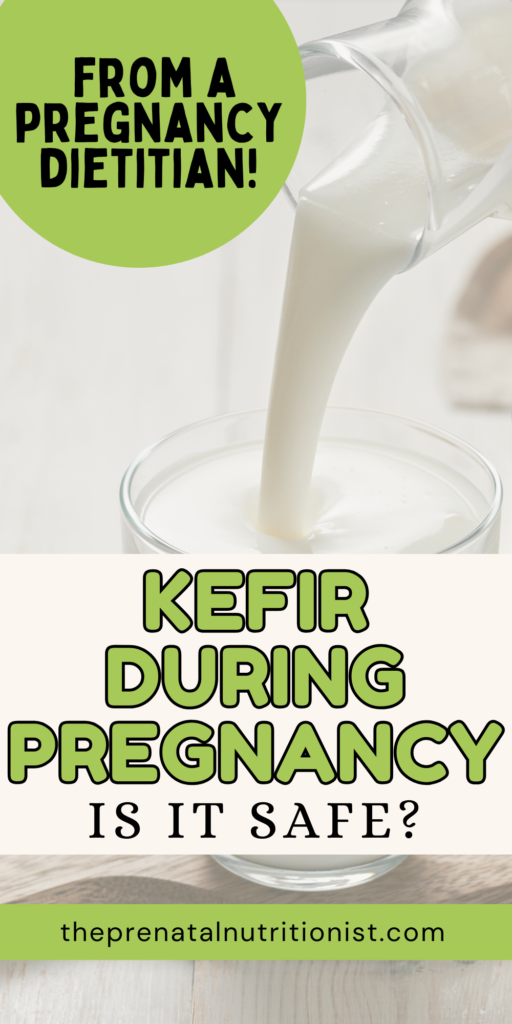
Navigating nutrition during pregnancy can feel like a full-time job. With all the questions, conflicting advice, and pressure to do everything “right,” it’s easy to feel overwhelmed. One area that often sparks confusion is probiotic-rich foods.
Nutrition before and during pregnancy plays a key role in supporting both you and your baby’s health. And since probiotics are known to benefit gut health, immunity, and more, it seems like they’d be a smart choice. However, not all probiotic foods are the same. While yogurt and supplements are commonly discussed, fermented drinks like kefir often leave people wondering: Is this actually safe?
I’ve shared about natural probiotics and fermented foods in the past, but today, we’re focusing specifically on kefir.
In this post, we’ll explore whether kefir is safe during pregnancy and how to incorporate it safely into your prenatal nutrition routine.
Kefir While Pregnant: Is It Safe?
Many pregnant women are curious about kefir – and for good reason. With its potential benefits for digestion, immune health, and overall gut health, it’s no surprise this fermented drink gets so much attention.
But before you take that first sip, it’s important to understand exactly what kefir is, how it’s made, and whether it aligns with your personal health goals during pregnancy. Like with any food or supplement during this time, a little extra awareness goes a long way in making confident, informed choices.
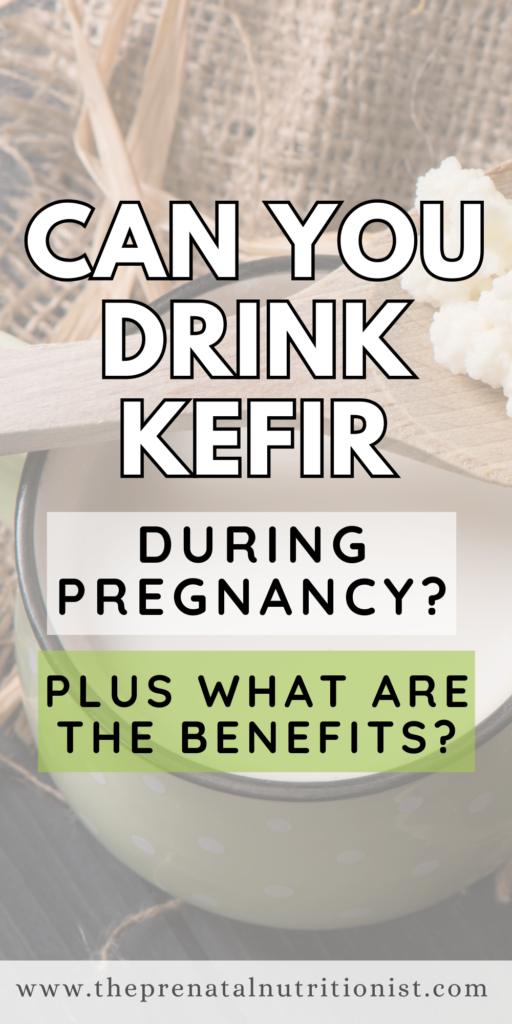
What Is Kefir? The Ins And Outs
Kefir is a traditional fermented milk drink that originated in the Caucasus Mountains. It’s made by adding kefir grains, which are clusters of beneficial yeast and bacteria, to fresh milk. Over about 24 hours, these grains ferment the milk, creating a tangy, slightly fizzy beverage that’s packed with nutrients.
Rich in vitamins, minerals, enzymes, and probiotics, kefir stands out for its diverse range of beneficial bacteria. Strains like Lactobacillus kefiri and Leuconostoc help support a balanced gut microbiome and may even help fight off harmful bacteria. Thanks to its unique fermentation process, kefir is often well-tolerated, even by those with mild lactose intolerance.
Can You Drink Kefir While Pregnant?
Yes—kefir is generally safe to consume during pregnancy, and its probiotic content may offer several benefits (more on that below!). That said, one key detail matters: whether the kefir is made from raw or pasteurized milk.
Raw milk products are more likely to carry harmful bacteria like Listeria monocytogenes, which poses serious risks during pregnancy, including miscarriage, preterm labor, and serious illness for both mother and baby. (I talk more about that here!) The best practice is to choose kefir made from pasteurized milk.
Most store-bought kefir is pasteurized before fermentation or made with pasteurized milk, but it’s always smart to check the label. If you’re unsure, don’t hesitate to ask your healthcare provider or dietitian for guidance.
Now that we’ve covered safety, let’s take a closer look at the potential benefits of drinking kefir during pregnancy.

What Are The Benefits Of Kefir For Pregnant Women?
Supports a Healthy Gut
Probiotics during pregnancy can play a key role in supporting digestion and keeping things moving, literally. Bloating and constipation are common pregnancy concerns, and the live cultures in kefir may help regulate bowel movements and support a more balanced gut environment. A healthy gut also aids in nutrient absorption, which is essential for both mom’s health and baby’s development.
Supports the Immune System
Pregnancy brings natural shifts in the immune system, making immune support super important. Kefir contains a variety of beneficial probiotic strains that may help reduce inflammation and strengthen the body’s natural defenses. In fact, some studies suggest that certain probiotics can modulate immune responses. This effect could potentially lower the risk of infections during pregnancy.
Provides Essential Vitamins And Minerals
Kefir is a valuable source of nutrients like magnesium, calcium, vitamin B, phosphorus, and even a little vitamin K2. These vitamins and minerals play a key role in nerve function, bone health, and the growth and development of your little one.
Supports Balanced Blood Sugar and Steady Energy
Thanks to its balance of protein, fat, and probiotics, kefir can help stabilize blood sugar levels and promote more consistent energy. This is especially helpful during pregnancy, when fluctuating hormones can lead to dips in blood sugar and increased fatigue. Choosing nutrient-dense options like kefir may help you feel more energized and satisfied between meals. Want more ways to nourish your pregnancy? Check out my pregnancy cookbook or enjoy a free one-week pregnancy meal plan by clicking here.
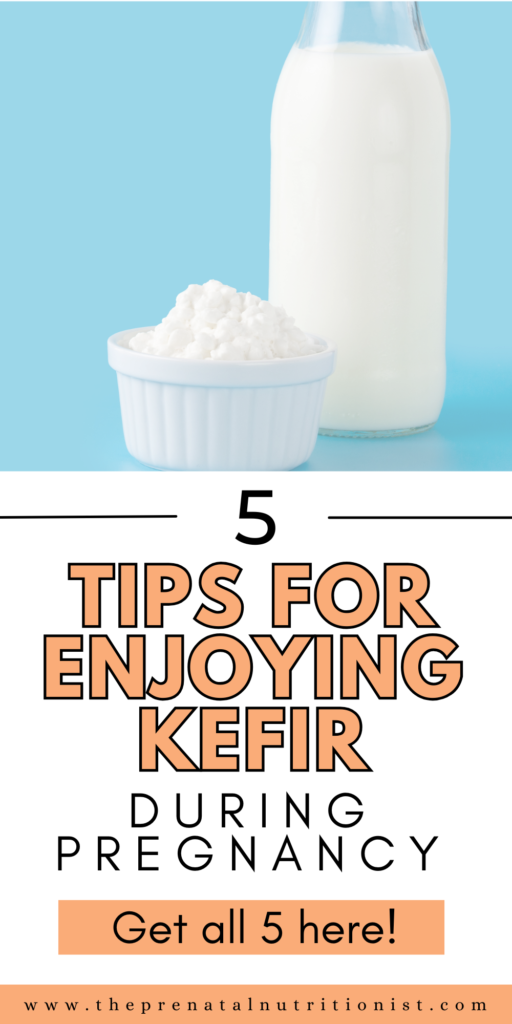
How To Drink Kefir During Pregnancy
Choose pasteurized products.
Always check the label to ensure the kefir you drink is made from pasteurized milk. Raw or homemade versions may be more likely to carry harmful bacteria like Listeria, which can pose serious risks during pregnancy. Sticking to pasteurized products helps protect both you and your baby.
Start with only small amounts.
If kefir is new to you, ease in slowly. Start with just ¼ to ½ cup to see how your body responds. This gives your digestive system time to adjust to the new probiotic load and can help minimize any temporary bloating or discomfort.
Add it to smoothies.
Not sure about the tangy taste? You’re not alone! One of the easiest (and tastiest) ways to enjoy kefir is by blending it into a fruit smoothie. It’s a great way to mask the flavor while soaking up all the benefits. You can easily swap it into any of your favorite smoothie recipes.
Pair it with other nutrient-dense foods.
Kefir goes great with oats, fruit, or nut butter for a balanced, satisfying snack. It also makes a creamy, protein-rich base for overnight oats. Just add fruit like bananas or berries on top for extra fiber and flavor.
Include it in your routine wisely.
There’s no need to overdo it. About 1 cup of kefir daily is enough to support your gut and immune health during pregnancy. Aim to include it alongside other pregnancy-safe dairy options and probiotic foods in a well-rounded prenatal nutrition plan.

Final Thoughts: Is Kefir a Safe Choice During Pregnancy?
Wondering if consuming kefir during pregnancy was safe? The answer is yes! Pasteurized kefir can absolutely be a safe and nutritious addition to your pregnancy diet. It offers protein, probiotics, and essential nutrients to support and maintain a healthy pregnancy.
Looking for more evidence-based answers on what’s safe to eat during pregnancy? Check out The Prenatal Nutrition Library App—a trusted, science-backed resource built to support expectant mamas every step of the way, from TTC to postpartum.
Not ready to dive all the way in just yet? That’s okay! Start by grabbing this free one-week meal plan to get a feel for what balanced, bump-friendly nutrition can look like. When it comes to your health (and your baby’s), you deserve clarity, not confusion.



